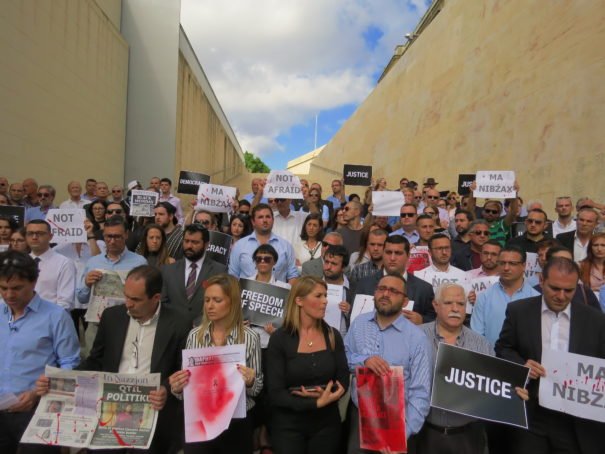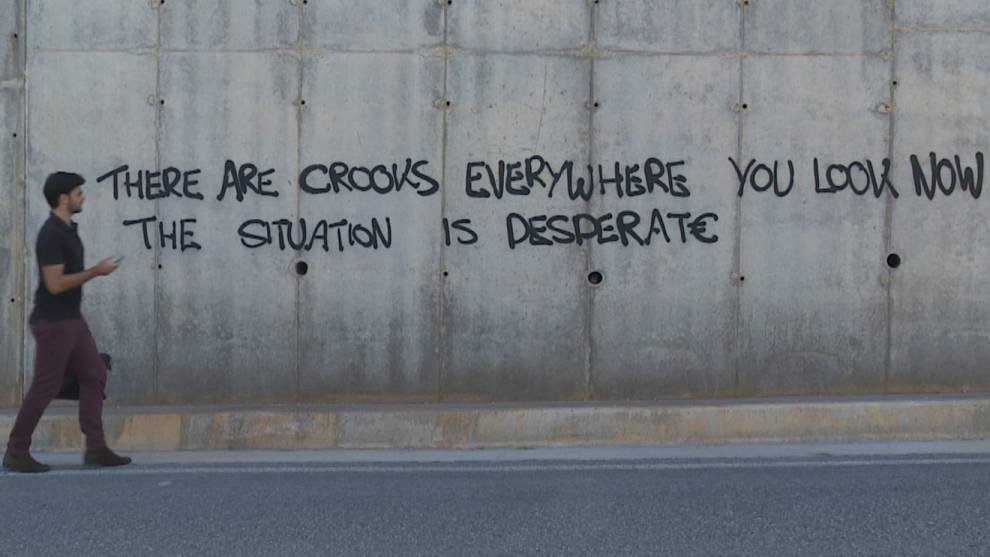
Mourning the Death of a Muckraker in Malta

Mourning the Death of a Muckraker in Malta

Beer in Marsascala
In Malta, everyone will probably remember where they were when they heard that investigative journalist Daphne Caruana Galizia was assassinated. She was killed on Monday, shortly after leaving home, when her white Peugeot 108 exploded. Her son, Matthew, was still at home; he heard the explosion and tried to save her. She was 53.
I was at a pub in the resort town of Marsascala, enjoying a pint of Kilkenny with a journalist friend. We were just at that moment discussing Caruana Galizia when I got a call from my wife telling me that friends were messaging her with the news. I didn’t believe it; I told her it couldn’t be true. But after putting my phone down, I overheard snippets of conversation from the next table, stuff like: “if you live by the sword…” I knew then that it was true. When my shocked friend confirmed the news on her smartphone, it was just a formality.
I first met Caruana Galizia 26 years ago, when I wrote her a letter asking her whether she would write a short note for my second personal exhibition of drawings. That led to her introducing me to newspaper cartooning, something I’ve done ever since. Incredibly, for a small place like Malta, I had only run into her once since then—about two months ago at a local trattoria.
Caruana Galizia was both lionized and hated in polarized Malta. She was a merciless critic of Malta’s ruling Labour government, in particular the two government personalities involved in the Panama Papers scandal, both of whom refused to step down, and both of whom enjoyed the continued support of the prime minister, Joseph Muscat. But she was also scathing about Malta’s main opposition party, and its new leader in particular, whom she accused of having financial links to a brothel in London’s Soho.
The current Labour government was re-elected earlier this year after a snap election, called as a vote of confidence after Caruana Galizia published stories about the prime minister’s wife taking kickbacks from Azerbaijan’s ruling family and stashing the cash in a secret Panama account.
Under this government, Malta has experienced rapid growth. A building boom has been fuelled by skyrocketing rental rates and the need to accommodate an influx of foreign workers. The other side of that coin has been a withering of national institutions, scandals involving government ministers, shady deals with Azerbaijan, and the sale of Maltese passports under the so-called Individual Investor Program, while Malta-born citizens are denied the right to know who their new compatriots are.
This is the first time a journalist has been assassinated on the island. Malta is in shock. The nature of the assassination was brutal, even for Malta, where car-bomb murders happen from time to time.
 The last words Caruana Galizia wrote on her blog before she was killed have been spray-painted on a wall in Malta.
The last words Caruana Galizia wrote on her blog before she was killed have been spray-painted on a wall in Malta.
Most friends I have been talking to are confused, and still can’t quite believe it. The assassination was no doubt a professional job, perhaps pointing to hired, imported hitmen. The motive is still unclear. Caruana Galizia had made many enemies over the years, but the general feeling is that no Maltese would really have gone this far. People are speculating that the murder might have been ordered from outside. There are whispers that she was about to break new stories involving international crime rings.
All this is happening in a vacuum. Information about the murder has been scant, and in the days after Malta’s highest-profile assassination, the Commissioner of Police—regarded by many as an incompetent stooge—was notable only for his silence on the matter. The police finally called a press conference on Thursday evening, but answered no questions. The prime minister has gone on record to say the FBI and Dutch experts will be joining local investigating forces, which only reinforces the locals’ poor perception of the police. A police sergeant’s Facebook post celebrating her death hasn’t helped.
There is also a feeling that, as with other brutal crimes in Malta, this one will remain unsolved, and forgotten after the international spotlight moves away.
After we heard the horrible news, we finished our drinks in a hurry and, perhaps unforgivably, failed to toast the memory of a very brave woman. All I remember saying to my journalist friend was: “Fuck! And I have to do a cartoon about this next Sunday?”